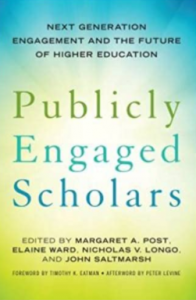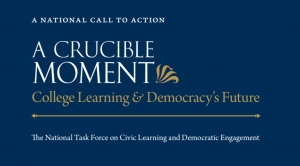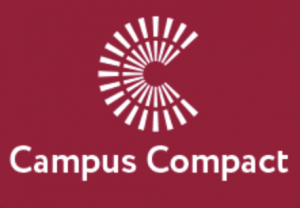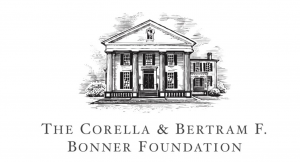 As part of the Stronger Together initiative, the Office of Community Engagement is hosting book discussions this summer based on Ibram X. Kendi’s book How to Be an Antiracist. These small groups discussions are now closed for summer 2020.
As part of the Stronger Together initiative, the Office of Community Engagement is hosting book discussions this summer based on Ibram X. Kendi’s book How to Be an Antiracist. These small groups discussions are now closed for summer 2020.
For those who are reading along, here are some reflections questions from Chapters 10-18 to guide us in critical self-reflection as we do the important work of becoming antiracist. Part 1, with questions for Chapters 1-9, is available here.
White – Chapter 10
Kendi discusses the suppression of black votes in the 2000 presidential election and the role that racist policies had in Bush’s election. As we face the 2020 election and voter suppression is again a topic of concern, what might an antiracist approach look like? How can we be advocates for antiracist voting policies?
In the current conversation around the confederate statue on the Square, one of the Lafayette County board of supervisors that voted to keep the statue was quoted as saying that he, too, had been a victim of racism. Kendi also asserts, “To be antiracist is to see ordinary White people as the frequent victimizers of people of color and the frequent victims of racist power.” (p 128) How is the supervisor’s encounter with racist power not an excuse for continued racist policies? How do racist policies hurt everyone, whites included?
Kendi mentions a billboard that proclaimed, “Antiracist is a code word for antiwhite.” (p 131) How would you respond to someone who made this claim? Kendi, in response, argues, “White supremacist is code for anti-human, a nuclear ideology that poses an existential threat to human existence.” How has racism harmed whites, as well, and the human race collectively?
Black – Chapter 11
“This [powerless] defense shields people of color in positions of power from doing the work of antiracism, since they are apparently powerless, since White people have all the power. This means that people of color are powerless to roll back racist policies adn close racial inequities even in their own spheres of influence, the places where they actually do have some power to effect change.” (p 140) Kendi gives numerous examples of Black on Black racism. What examples can think of that involve Black antiracism? Consider the difference in the Lafayette County vote and the Bolivar County vote on the removal of confederate statues.
Kendi comes back to the duality of racism and antiracism as an either/or. “When we stop denying the duality of racist and antiracist, we can take an accurate accounting of the racial ideas and policies we support.” (p 143) Kendi talks honestly about his own racist and antiracist moments. If you feel comfortable sharing, discuss some of your own racist and antiracist moments after reflecting on the reading thus far. How has the text shifted your understanding of your own racial understanding and biases?
Kendi discusses Black racism, particularly in police brutality against Blacks (p 147). He says that diversifying police forces was supposed to address racism. However, he recounts the violence of Black police officers against Black individuals and their involvement and/or complicity in numerous officer-perpetrated violence. How is the intentionality of antiracism work different from diversity work? How is it essential in reducing police violence and racism in policing?
Class – Chapter 12
“To love capitalism is to end up loving racism. To love racism is to end up loving capitalism.” What do you make of Kendi’s argument that capitalism and racism are conjoined twins, two sides of the same destructive body? (p 162)
Kendi talks about Senator Warren’s proposal to disentangle capitalism from theft and racism and secism and imperialism. How might we begin to promote equitable economic policies? Are reparations a way to correct some of the historical economic racism and injustice?
Space – Chapter 13
Kendi talks about the need for Black space – “They desired to separate, not from Whites, but from White racism. Separation is not, always segregation. The antiracist desire to separate from racists is different from the segregationist desire to separate from ‘inferior’ Blacks.” (p174) What do you make of Kendi’s distinction here?
He also discusses the Plessy case and Brown v Board of Education desegregating the schools, as de-legitimizing the separation without addressing the inequities of funding, resources, and equal opportunity. He cites Dr, King’s opposition to integration in the schools as well – “People with such a low view of the Black race cannot be given free rein and put in charge of the intellectual care and development of our boys and girls.” What is your response?
How does this perspective inform the way you think about integration? Current racial inequities in the schools? The need for Black space and culture?
How might space antiracism inform space on our university campus? What evidence do you see of both integrated and protected racialized spaces?
Gender – Chapter 14
Kendi asserts that “To truly be antiracist is to be feminist. To truly be feminist, is to be antiracist.” (p 188) Do you agree?
He argues that gender racism impacts White women and male groups of color, whether they see it or not, and gives several examples. What examples have you seen? What impacts has gender racism had on your life? What evidence have you seen of its impact at the university or in our community?
Kendi concludes this chapter by sharing his journey, recognizing first “the intersectionality of my ethnic racism, and then my bodily racism, and then my cultural racision, and then my color racism, and then my class racism, and when I entered graduate school, my gender racism and queer racism.” (p191) What has your journey been like? Where you have recognized your own racism and what are areas you still struggle with?
Sexuality – Chapter 15
Kendi recounts that the most violated and oppressed of all the Black intersectional groups is those of poor transgender Black women, with an average life expectancy of 35 years (p196). What is your response to this staggering statistic? What do you know of the Black trans lives matter movement?
“To be queer antiracist is to see homphobia, racism, and queer racism- not the queer person, not the queer space-as the problem, as abnormal, as unnatural” (p 197). What would queer antiracist policies look like on a university campus?
Kendi discusses Black intersectionality with class, gender, sexuality, notably not religion. What do you make of this omission? How might intersectionality with religion intensify or mitigate queer racism?
Failure – Chapter 16
Kendi begins this chapter with a definition of Activist, “One who has a record of power or policy change.” What are your thoughts on this definition? Using this definition, do you consider yourself an activist? Why or why not?
“What if we measure the radicalism of speech by how radically it transforms open-minded people, by how the speech liberates the antiracist power within? What if we measure the conservatism of speech by how intensely it keeps people the same, keeps people enslaved by their racist ideas and fears, conserving their inequitable society?” (p 211) – What do you think of this definition of radical and conservative speech? How might this re-frame the way you think about anti racist action?
“As racist ideas intend to make us ignorant and hateful, racist terror intends to make us fear.” (212) How does moving beyond cowardice or fear become a pre-requisite for social change? See page 207 and the support for antiracist policies after they passed. How does seeing fear not materialize en-courage us to continue to advance anti racist policies?
Success – Chapter 17
“Racism has always been terminal and curable. Racism has always been recognizable and mortal.” These words are hopeful and inspiring, as we do anti racism work.
What do you think of the successive steps that Kendi identified in his journey to be an anti-racist? What steps are you willing to take? (p225)
Make your own anti racist pledge. What will you commit to do as an antiracist activist? What can we do collectively to demonstrate our commitment to be antiracist?
Survival – Chapter 18
“The source of racist ideas was not ignorance and hate, but self-interest.” (p229) How does this perspective on racism shape our efforts to change it?
Kendi outlines clear steps we can all take to eliminate racial inequity in our spaces (231-233). Have you seen examples of this kind of antiracist work done successfully? How can we implement these steps on our campus and in our community?
Kendi compares racism with stage 4 metastatic cancer. As he shares his denial and coming to terms with his own cancer, he sees our denial of racism and its ravaging effects on our country and our world. Given George Floyd and the growing visibility of racial violence, given national protests and seemingly new white consciousness around racism, are we moving beyond denial to a racial reckoning? What signs of hope do you see?
How might we build continued momentum around antiracist policies to promote lasting change? How can we translate these demonstrations into Kendi’s form of activism – promoting antiracist policies and antiracist policymaker on campus, in our community, and around the world?
Final Wrap-Up
What are your big takeaways from Kendi’s book? What resonated with you? What has sparked a new way of thinking, feeling, or being in the world?
What surprised you or bothered you? Are there ideas you want to explore more deeply, or some that made you uncomfortable?
What are the next steps in your journey? How do you want to continue to learn and to engage? How can we continue this journey together, toward allyship and action?







 As part of the
As part of the 






